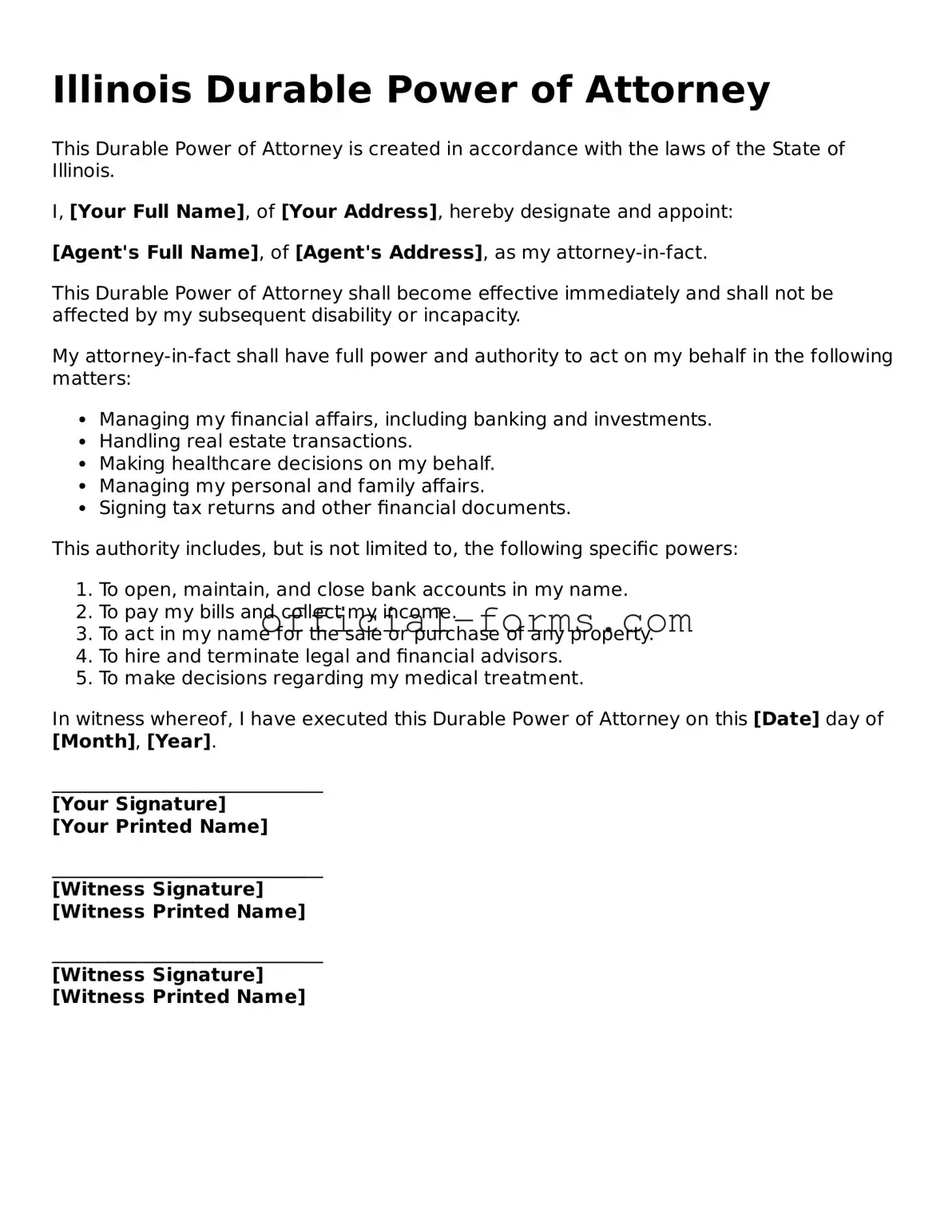Official Illinois Durable Power of Attorney Document
The Illinois Durable Power of Attorney form is a legal document that allows an individual to designate someone else to make decisions on their behalf, particularly in financial or healthcare matters. This form remains effective even if the individual becomes incapacitated, ensuring that their wishes are honored. Understanding how to properly utilize this document is essential for effective planning and protection of one's interests.
Open My Durable Power of Attorney Now

Official Illinois Durable Power of Attorney Document
Open My Durable Power of Attorney Now
Don’t leave your form incomplete
Finish Durable Power of Attorney online quickly from start to download.
Open My Durable Power of Attorney Now
or
➤ PDF
